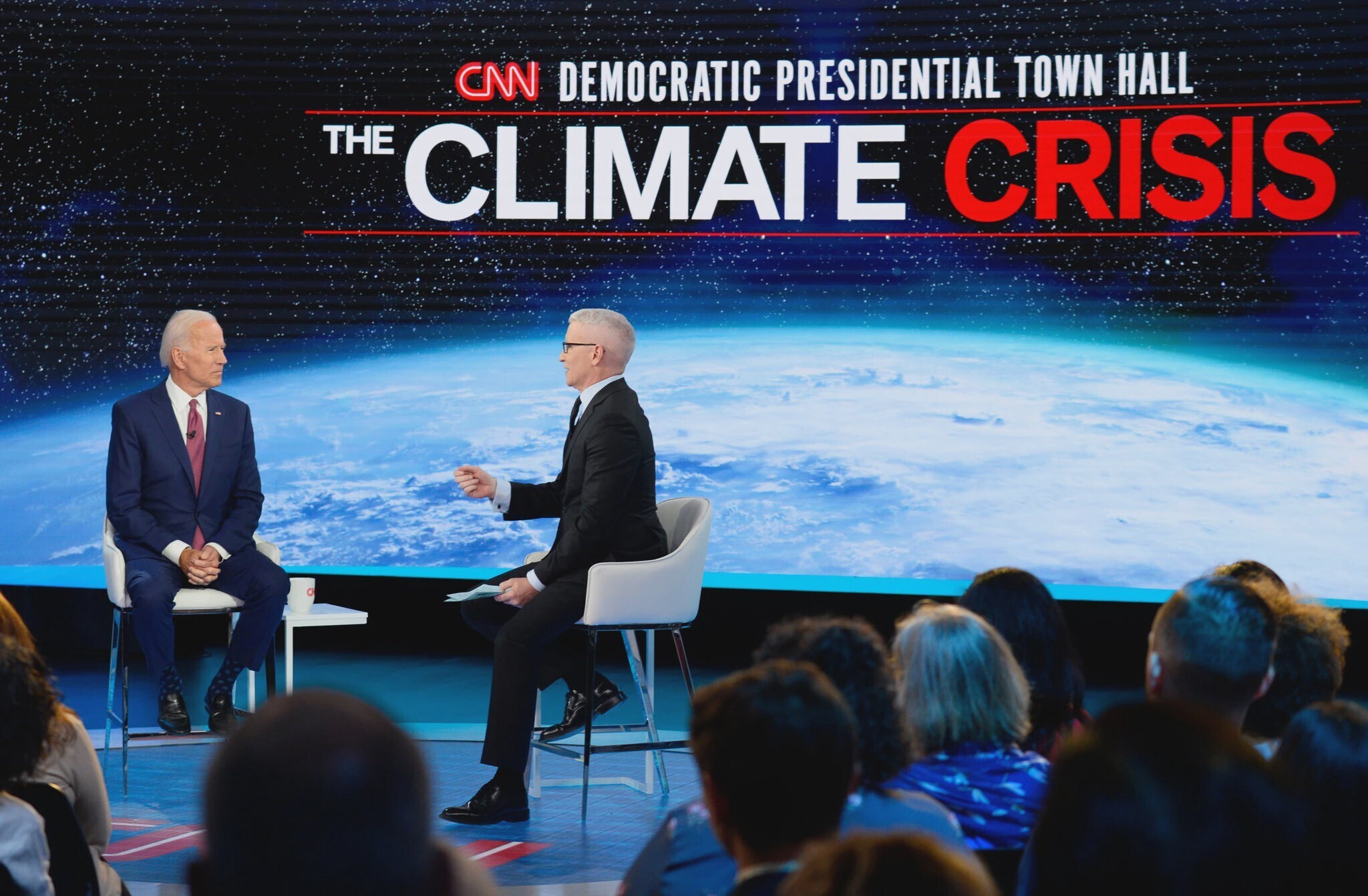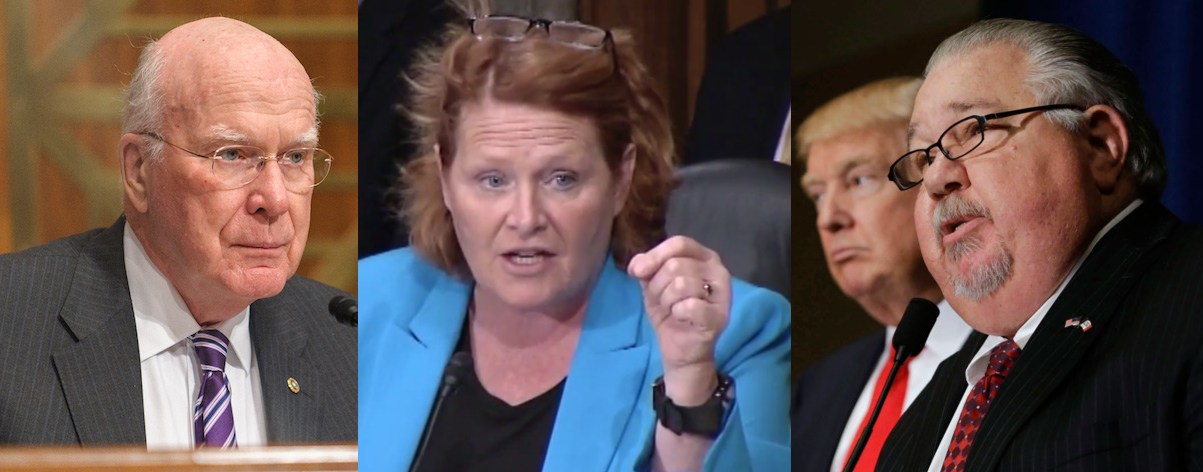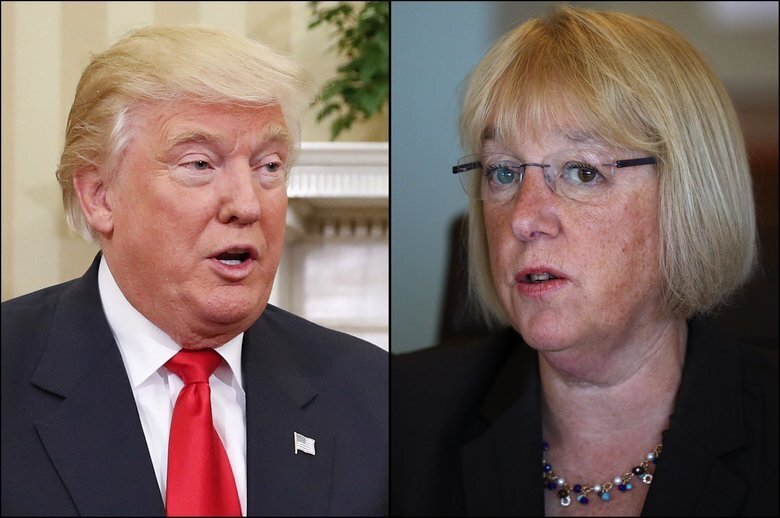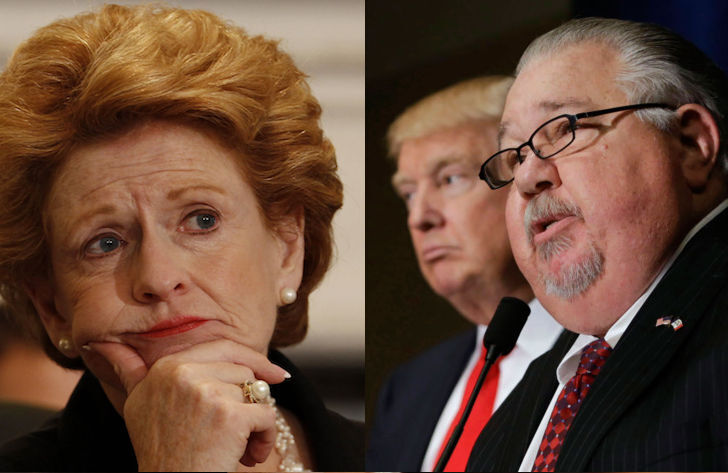Witness
- Phyllis Fong, Inspector General, USDA
03/29/2022 at 10:00AM
Climate science, policy, politics, and action
Witness
Nominees
Bonnie is currently serving as the USDA’s Deputy Chief of Staff for Policy and Senior Advisor, Climate.
 Administration names Gavin Schmidt, Robert Bonnie, Sonal Larsen, Satyam
Khanna climate advisors (clockwise from top left)
Administration names Gavin Schmidt, Robert Bonnie, Sonal Larsen, Satyam
Khanna climate advisors (clockwise from top left)
President Joe Biden is continuing to build out an administration-wide climate infrastructure with new appointments. This interagency “climate cabinet,” anchored by National Climate Advisor Gina McCarthy and Special Presidential Envoy for Climate John Kerry in the White House, looks to extend to every department. Here are the recent announcement for four diverse agencies:
National Aeronautic and Space Administration: Gavin Schmidt, director of NASA’s Goddard Institute for Space Studies in New York, will serve in the newly created position of senior climate advisor. Schmidt has been GISS director since 2014. His main research interest is the use of climate modeling to understand past, present, and future climate change, and he has authored or co-authored more than 150 research papers in peer-reviewed literature. He is a fellow of the American Geophysical Union (AGU) and the American Association for the Advancement of Science and was the inaugural winner of the AGU Climate Communication Prize in 2011. He also was awarded NASA’s Outstanding Leadership Medal in 2017. He has a bachelor’s degree in mathematics from Oxford University and a doctorate in applied mathematics from University College London.
Securities and Exchange Commission: Satyam Khanna will serve as Senior Policy Advisor for Climate and Environmental and Social Governance. Khanna was most recently a resident fellow at NYU School of Law’s Institute for Corporate Governance and Finance and served on the Biden-Harris Presidential Transition’s Federal Reserve, Banking, and Securities Regulators Agency Review Team. He was previously a member of the SEC’s Investor Advisory Committee, where he served on the Investor-As-Owner Subcommittee, and was a senior advisor to the Principles for Responsible Investment. Prior to that, he served as Counsel to SEC Commissioner Robert J. Jackson Jr. Earlier in his career, Khanna was a member of the staff of the Financial Stability Oversight Council at the U.S. Treasury Department and was a litigation associate at the law firm McDermott Will & Emery. He is a graduate of Columbia Law School and Washington University in St. Louis. He was also a blogger at ThinkProgress for the Center for American Progress Action Fund.
U.S. Department of Agriculture: Robert Bonnie was named Deputy Chief of Staff for Policy and Senior Advisor, Climate, in the Office of the Secretary: Most recently Bonnie served as an executive in residence at the Nicholas Institute for Environmental Policy Solutions at Duke University. Previously, he served as Director of the Farm and Forests Carbon Solutions Initiative at the Bipartisan Policy Center, where worked to develop new initiatives to combat the climate crisis through agricultural innovation. During the Obama Administration, he served as Under Secretary for Natural Resources and Environment and as a Senior Advisor to Secretary Vilsack for climate and the environment. He worked at the Environmental Defense Fund for 14 years. Bonnie holds a master’s degree in forestry and environmental management from Duke University, and a bachelor’s from Harvard College.
General Services Administration: Sonal Kemkar Larsen, formerly a national advisor for the mayoral level City Energy Project partnership in Salt Lake City Mayor Ralph Becker’s sustainability office. She was a former official at both the White House Council of Environmental Quality and at the Department of Energy. Previously she was a sustainability consultant at the United Nations Environment Program in Bangkok. She will play a role as senior advisor on Climate.
 Even
though the loser of the presidential election, Donald Trump, continues
his quest for autogolpe, President-elect Joe Biden’s transition team is
hard at work preparing his new administration. Among the hundreds of
staff and volunteers comprising the agency review
teams
are dozens of climate hawks. These are people with significant
experience in climate policy and politics. Some have careers rooted in
environmental justice, while others are technologists.
Even
though the loser of the presidential election, Donald Trump, continues
his quest for autogolpe, President-elect Joe Biden’s transition team is
hard at work preparing his new administration. Among the hundreds of
staff and volunteers comprising the agency review
teams
are dozens of climate hawks. These are people with significant
experience in climate policy and politics. Some have careers rooted in
environmental justice, while others are technologists.
Cabinet departments are listed in order of creation, an approximate reflection of their power and significance within the federal government. This post will be continually updated.
State (nominee: Tony Blinken)
Treasury (nominee: Janet Yellen)
Defense (nominee: Gen. Lloyd Austin)
Justice
Interior (nominee: Rep. Deb Haaland (D-N.M.))
Agriculture (nominee: Tom Vilsack)
Commerce
Labor
Health and Human Services none
Housing and Urban Development none
Transportation
 Two
more members of the Senate Committee on Agriculture, Senator Patrick
Leahy, Democrat of Vermont, and Senator Heidi Heitkamp, Democrat of
North Dakota, are publicly opposing the confirmation of Sam Clovis,
Trump’s nominee to be USDA chief scientist.
Ranking Member Debbie Stabenow of Michigan announced her
opposition
in September.
Two
more members of the Senate Committee on Agriculture, Senator Patrick
Leahy, Democrat of Vermont, and Senator Heidi Heitkamp, Democrat of
North Dakota, are publicly opposing the confirmation of Sam Clovis,
Trump’s nominee to be USDA chief scientist.
Ranking Member Debbie Stabenow of Michigan announced her
opposition
in September.
Clovis, long under criticism for his lack of scientific credentials, is now embroiled in the Mueller investigation for his role as a top Donald Trump presidential campaign official. Clovis directed his subordinate on the Trump campaign, George Papadopoulos, to “make the trip” to Moscow to collude with Russian agents.
“If his anti-science record were not enough cause for concern,” Leahy’s statement reads, “the latest reporting suggesting that Mr. Clovis may have facilitated Russian collusion in our elections raises these concerns to an alarming level. Even for this administration, that should be disqualifying.”
“Sam Clovis is uniquely unqualified to serve as USDA’s top scientist, and his confirmation would be harmful to North Dakota’s farmers, ranchers, and rural communities,” Heitkamp said in a statement to Politco. “North Dakota’s farmers and ranchers need and deserve someone in this role who will work in their best interest – and that is not Sam Clovis. I’ll oppose his nomination.”
With Leahy and Heitkamp’s announcements, there are ten senators, including three on the Agriculture Committee, to publicly oppose the nominee, who rejected the science of climate change, promoted the conspiracy theory that Barack Obama was not born in the United States, and argued that homosexuality is a choice.
A growing coalition of environmental, science, and sustainable farming organizations oppose Clovis.
Senators in public opposition to Sam Clovis:
Kamala Harris (D-CA)
Brian Schatz (D-HI)
Chuck Schumer (D-NY)
Sheldon Whitehouse (D-RI)
Debbie Stabenow (D-MI)*
Tom Udall (D-NM)
Patty Murray (D-WA)
Maria Cantwell (D-WA)
Patrick Leahy (D-VT)*
Heidi Heitkamp (D-ND)*
Members of the agriculture committee are marked with an asterisk.
 Senator Patty
Murray, Democrat of Washington State, is “strongly” opposing the
confirmation of Sam Clovis, Trump’s nominee to be
USDA chief scientist. Murray based her
opposition on concerns that Washington is vulnerable to the dangers of
climate change, and need government officials who respect the science,
not “an adamant climate change denier” with a “deeply disturbing record
of racist, homophobic, and sexist comments.”
Senator Patty
Murray, Democrat of Washington State, is “strongly” opposing the
confirmation of Sam Clovis, Trump’s nominee to be
USDA chief scientist. Murray based her
opposition on concerns that Washington is vulnerable to the dangers of
climate change, and need government officials who respect the science,
not “an adamant climate change denier” with a “deeply disturbing record
of racist, homophobic, and sexist comments.”
Murray expressed her opposition in a letter to a constituent obtained by Hill Heat.
Murray is the sixth senator to publicly oppose the nominee, who rejected the science of climate change, promoted the conspiracy theory that Barack Obama was not born in the United States, and argued that homosexuality is a choice.
A growing coalition of environmental, science, and sustainable farming organizations oppose Clovis.
Thank you for contacting me with regard to Dr. Sam Clovis, President Donald J. Trump’s nominee to be the Under Secretary for Research, Education, and Economics and chief scientist for the U.S. Department of Agriculture (USDA). I appreciate hearing from you.
The responsibility to evaluate and vote upon nominees is one of my most important duties as your senator. I evaluate each individual that a president submits to the Senate based upon their record and experience to make sure they meet my long-held standards regarding ethics, honesty, and substantive experience in fields related to the job for which they are nominated. Whether in committee or on the Senate floor, I ask tough questions about how each nominee plans to move our country forward, to make it more just and inclusive, and to fight for the middle class and working families.
President Trump promised to “drain the swamp,” but with his choices of many Cabinet nominees and other officials, he has repeatedly broken that promise. So many of his nominees have been mired in shocking conflicts of interest or simply have not had the basic experience necessary for the positions they seek to fill. President Trump has continued to break that promise with the nomination of Dr. Clovis, who lacks any relevant experience for the position and is unfit to serve in any office of public service due to his history of racist and outrageous public comments. The president has again put campaign politics before basic competence by selecting Clovis, who served as one his senior campaign advisors, over individuals with knowledge and experience related to USDA, to agriculture in general, and to the agricultural research that is so important to Washington state.
The 2008 Farm Bill added the responsibility of chief scientist to the Under Secretary’s role, expanding the position’s duties and including the responsibility to lead scientific evaluation of evidence and data in order to inform policymaking. By law, this individual must be a scientist, and Dr. Clovis is not. He holds degrees in political science, business, and public administration, but appears to have no actual science background and has never worked in the agricultural economy. Accordingly, he is unable to fulfill the requirements of the Farm Bill and is unqualified for this role. I am also concerned by Clovis’ continued rejection of clear science, as he remains an adamant climate change denier. Climate change is real, and we can no longer pretend it is not. It is impacting families, workers, families, and business in Washington state and across the country. In Washington state, the realities of climate change have led to shrinking glaciers on Mt. Rainier, more intense and devastating wildfires, the loss of crops, reduced yields, and the destruction of wildlife habitats. USDA’s chief scientist must not be a person who rejects science or who questions the importance of crop insurance programs that are so important to our state, as Clovis has.
In addition to clearly lacking appropriate experience and training for the role, Clovis has a deeply disturbing record of racist, homophobic, and sexist comments that do not represent the values of Washington state and are unacceptable for any individual to make, let alone someone seeking a public office. His hateful and divisive words have no place in our diverse nation. Now more than ever, and in the wake of events like the tragedy in Charlottesville, we cannot permit hatred and bigotry to go unchallenged anywhere. Individuals who hold such views have no place being in positions of public trust.
I have been proud to lead the fight against President Trump’s unqualified nominees, and I will keep up that fight for as long as it takes. If and when Dr. Sam Clovis’ nomination for the Under Secretary of Research, Education, and Economics comes before the full Senate, I will strongly oppose him. The chief scientist role at USDA, which drives the agricultural research that is vital to maintaining Washington state’s edge in a global agricultural marketplace, must be filled by a competent professional who believes in science and in creating a sustainable future for all — regardless of race, gender, or sexual orientation.
Again, thank you for taking the time to share your thoughts with me, and please know that I will keep them in mind. If you would like to know more about my work in the Senate, please feel free to sing up for updates at http://murray.senate.gov/updates.
Sincerely,
Patty Murray
United States Senator
 Sen. Debbie Stabenow; Sam Clovis
Sen. Debbie Stabenow; Sam Clovis
In a letter to supporters, Sen. Debbie Stabenow (D-Mich.), the ranking member of the Senate Committee on Agriculture, announced her opposition to President Trump’s nominee to be the top scientist at the Department of Agriculture, Sam Clovis. She highlighted his lack of professional qualifications as well as his “absurd” statements on climate change, LGBTQ issues, and race.
“I’m opposing President Trump’s nomination of Clovis for Chief Scientist in the Department of Agriculture,” Stabenow wrote. “As ranking member of the Agriculture Committee, I oppose his nomination and I call on President Trump to withdraw it immediately. If he does not, I will lead the opposition and promise to bring his troubling record to light.”
Clovis, a right-wing talk show host from Iowa who ran a failed campaign for the Republican Senate nomination and held a senior position in the Trump election campaign, has a long history of prejudicial and anti-science statements. In a 2011 blog post, Clovis called progressives “race traitors.” He believes climate change is “junk science.” He said Trump’s border wall is a “matter of national security and national sovereignty.” Clovis said the science was still out but “as far as we know” homosexuality is a choice.
Clovis helped devise Trump’s Muslim ban, and has claimed that Barack Obama was not born in Honolulu. He called Eric Holder a “racist black,” Tom Perez a “racist Latino,” and claimed that President Obama “wants to enslave all who are not part of his regime.”
Clovis’ positions on agriculture policy are similarly radical: he has consistently opposed federal crop insurance, calling for it to be privatized in a 2014 interview and questioning its constitutionality in a 2013 radio interview.
In July, Republican Senator Pat Roberts of Kansas said at an Agriculture Committee hearing, “If there is some nominee who is coming before the committee who says crop insurance is unconstitutional, they might as well not show up.”
The law requires that the USDA’s Chief Scientist be chosen from “distinguished scientists with specialized training or significant experience in agricultural research, education, and economics.” Clovis has no such experience.
Stabenow joins Democratic senators Brian Schatz of Hawaii, Minority Leader Chuck Schumer of New York, and Kamala Harris of California in opposition to Clovis. She is the first member of the Agriculture Committee to formally oppose Clovis’ nomination.
A broad and growing coalition of agriculture, climate-justice, environment, science, and civil rights groups have forcefully opposed the Clovis nomination.
Stabenow’s letter is below:
From the transition team:
In announcing Colorado Senator Ken Salazar as his choice for Secretary of the Interior and Iowa Governor Tom Vilsack for Secretary of Agriculture, President-elect Barack Obama made clear he considers both Secretaries-designate to be key members of his energy and environment team.
“It’s time for a new kind of leadership in Washington that’s committed to using our lands in a responsible way to benefit all our families,” President-elect Obama said. “That is the kind of leadership embodied by Ken Salazar and Tom Vilsack.”
In their remarks, Secretaries-designate Salazar and Vilsack both emphasized their commitment to focusing on energy issues.
“I look forward to working directly with President-elect Obama as an integral part of his team as we take the moon shot on energy independence,” Secretary-designate Salazar said. “That energy imperative will create jobs here in America, protect our national security, and confront the dangers of global warming.”
Secretary-designate Vilsack spoke of his commitment to “promote American leadership in response to global climate change,” and declared his intent to “place nutrition at the center of all food programs administered by the Department.”
At the Nation, John Nichols criticizes the selection of Vilsack as “at best, a cautious pick,” saying “Obama could have done better, much better.” Nichols pointed to progressive food politics leaders such as writer Michael Pollan, Tom Buis, the president of the National Farmers Union, Wisconsin Secretary of Agriculture Rod Nilsestuen or North Dakota Commissioner of Agriculture Roger Johnson.
Even more impressive would have been former North Dakota Commissioner of Agriculture Sarah Vogel, an always-ahead-of-the-curve advocate for food safety and fair trade. The same can be said for Minnesota Secretary of State Mark Ritchie, a former policy analyst in Minnesota’s Department of Agriculture who co-founded and for many years led the Minneapolis-based Institute for Agriculture and Trade Policy.
(Buis praised Vilsack’s selection in the New York Times and Washington Post.)
The Center for Biological Diversity calls Sen. Salazar’s record “especially weak in the arenas most important to the next Secretary of the Interior: protecting scientific integrity, combating global warming, reforming energy development and protecting endangered species.”
In contrast, the League of Conservation Voters calls both “skilled, knowledgeable leaders committed to protecting our environment and rebuilding our economy with clean, renewable energy.”
At the New Republic, Bradford Plumer delves into the scandal-ridden Department of Interior Salazar will inherit.
From E&E News:
Overall, the fiscal 2009 USDA budget would cut discretionary spending by 4.8 percent. The major increases in the budget would go to food assistance programs to cover the growing number of people who qualify for food stamps and other aid programs. Two of the hardest hit areas of the budget would be research and conservation, which would each see budget cuts of almost 15 percent.
The administration’s proposal would cut more than 10 percent from USDA’s research budget, which includes a wide range of programs, from livestock safety to farm-based energy, biotechnology and food safety. USDA Deputy Secretary Chuck Conner said last week that the cuts came from wiping out congressional earmarks for different research projects.
The White House also made what has become an annual effort to zero out funding for a number of discretionary programs it says are redundant, including local watershed surveys and flood prevention programs. The Bush administration has tried to eliminate the programs in previous years, but congressional appropriators have restored them each year. DeLauro noted she plans to restore the funds again this year.
This year the administration also targeted a popular renewable energy program in its spending cuts for the first time. The budget includes no funding for grants or loans for the “Section 9006” renewable energy program, which gives money to help farmers improve energy efficiency on their farms and develop small on-farm business ventures in wind, solar, biomass or geothermal energy.
The House and Senate both proposed large increases for the renewable energy program in last year’s farm bill and appropriations measures, and the administration had proposed expanding it in the farm bill. USDA included it this year in a list of programs that “serve limited purposes for which financing and other assistance is available.”
Witness